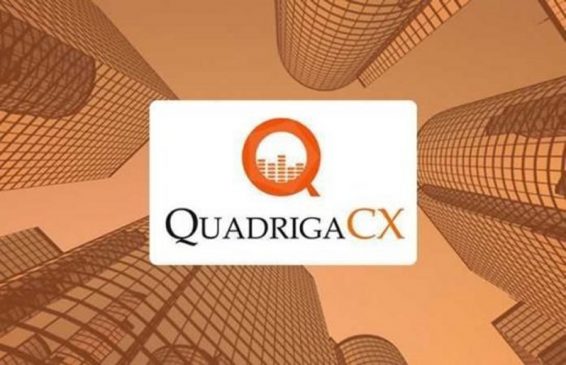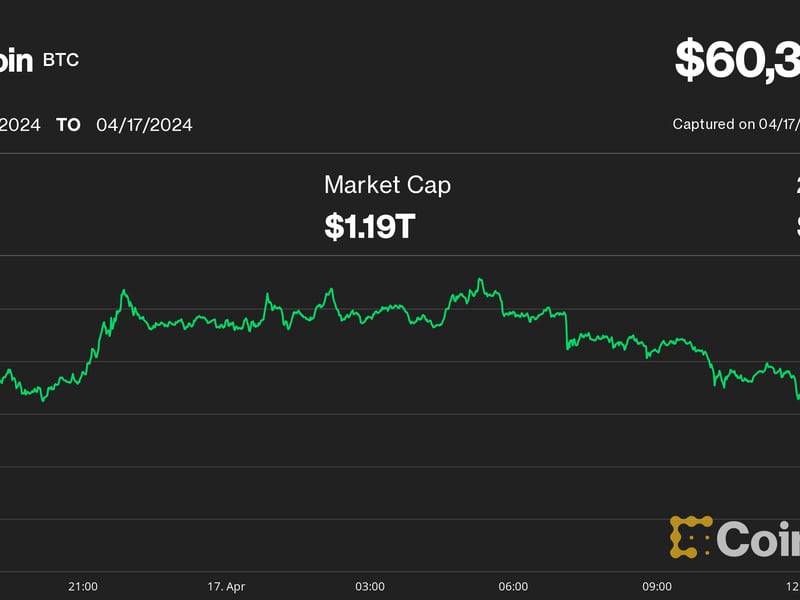A cryptocurrency analyst says there is little evidence that tens of millions of dollars of assets allegedly trapped on hard drives belonging to the deceased founder of a Canadian cryptocurrency exchange are being stored in so-called cold wallets.
QuadrigaCX’s 30-year-old founder, Gerald Cotten, died unexpectedly in India on Dec. 9. It took more than a month for Cotten’s widow, Jennifer Robertson, to post the news on the exchange’s website on Jan.14. On Jan. 31, Quadriga announced it had filed an application in Nova Scotia Supreme Court for creditor protection.
In a sworn affidavit, Robertson said Cotten held the majority of the $250 million in assets from 115,000 Quadriga users in cold wallets.
A cold wallet is where cryptocurrency is stored when not being actively traded in hot wallets on an exchange.
Analytics firm Elementus and others have been analyzing the blockchain for evidence of these cold wallets and have been unable to find them.
The blockchain is a distributed ledger that records all transactions across many computers where anyone can track the movement of publicly available cryptocurrency transactions.
“So you know when looking on the blockchain to see whether what’s there corroborates the story, you would expect to see funds moving out into a cold wallet,” said Max Galka, CEO of Elementus.
“The fact that no cold wallets are present means that, yeah, that’s the story that they’re telling, it’s not consistent with what they’re saying.”
Life savings lost
Xitong Zou, who lives in the Greater Toronto Area, said he’s not sure he’ll ever see his life savings again.
Last October, Zou decided to exchange his more than $420,000 US into Canadian currency — a value of about $560,000. Instead of using banks and paying fees associated with such a transaction, he decided to transfer the funds through Quadriga.
Zou said week after week he would contact the exchange, asking when the transaction would be complete and he could retrieve his money.
“They kept telling me it was because of the CIBC lawsuit at the time and every time I emailed them, that’s what they told me. They said just wait another two weeks, just wait another two weeks, you’ll get your money,” he said.
CIBC took legal action and froze almost $26 million of Quadriga’s funds in early 2018. The bank alleged it was unable to determine who the money belonged to and began investigating.
Despite this, Zou said he believed Quadriga to be a trustworthy exchange. But the circumstances around Cotten’s death and how the exchange was run raises many questions, he said.
“It’s all a very crazy story that a lot of us could not believe,” said Zou.
“People really panicked from that time and a week later they shut down the website. We couldn’t withdraw anything anymore. All our money was basically stuck on there and then we heard about the creditor protection they’re filing with the CCAA [Companies’ Creditors Arrangement Act].”
Zou is one of a number of Quadriga users who have hired a law firm to represent him. He’s sworn an affidavit in an effort to get back some of his money.
Little evidence of cold wallets
Galka said there could be a reasonable explanation as to why he and other analysts can find little evidence of cold wallets that Robertson claims exist, but the lack of evidence on the blockchain is suspicious.
“There are some tricky pieces about it because when you see money moving out of the Quadriga wallets, it’s not always clear whether it is a customer who is making a withdrawal or whether the transfer is being made on Quadriga’s behalf with their own treasury funds,” he said.
“So that’s kind of the tricky part of what people have keyed in on though is that when you look around at all the places where money is leaving their hot wallets, [there doesn’t] seem to be many possible candidates for a long-term storage cold wallet.”
On Feb. 2, Jesse Powell, CEO of another exchange called KrakenFX, tweeted that Quadriga had “thousands” of wallets on his exchange and tagged RCMP, saying to contact him.
We have thousands of wallet addresses known to belong to @QuadrigaCoinEx and are investigating the bizarre and, frankly, unbelievable story of the founder’s death and lost keys. I’m not normally calling for subpoenas but if @rcmpgrcpolice are looking in to this, contact @krakenfx— Jesse Powell (@jespow) February 3, 2019
“We have thousands of wallet addresses known to belong to @QuadrigaCoinEx and are investigating the bizarre and, frankly, unbelievable story of the founder’s death and lost keys. I’m not normally calling for subpoenas but if @rcmpgrcpolice are looking in to this, contact @krakenfx,” read the tweet.
Messages to Powell were not returned. Instead, a link on his LinkedIn profile asks those wanting to contact him to pay $100.
Possible good news for Quadriga users
Galka said if Powell’s claims are true, it could be good news for people like Zou hoping to get their money back.
“If that’s the case that instead of being sent to a cold wallet on the blockchain they were sent into the custody of other exchanges, then if they’re still there, then they should be fully accessible and those exchanges should be able to return them to the rightful owners,” he said.
Galka would not speculate on why Quadriga would be holding thousands of wallets on another exchange and said there could be an innocent reason as to why Quadriga would do such a thing.
“What will usually happen to those funds is that they will move into exchanges in very small increments which is not unlike how money laundering happens in the real world; that, you know, if you deposit a million dollars in cash into a bank, that’s likely to raise some suspicion,” he said.
“But if you’re able to sort of move that money around in very small amounts, it can get on under the radar and they may not be noticed. And that’s true also of cryptocurrency that exchanges are pretty diligent about scrutinizing large deposits.”
Galka said he believes regulation could be the answer to some of the many problems that have plagued the cryptosphere throughout its history.
“I think this space needs to clean up. I think it’s a real shame that for so long it has been marred by … all of this kind of stuff that scares people away.”




